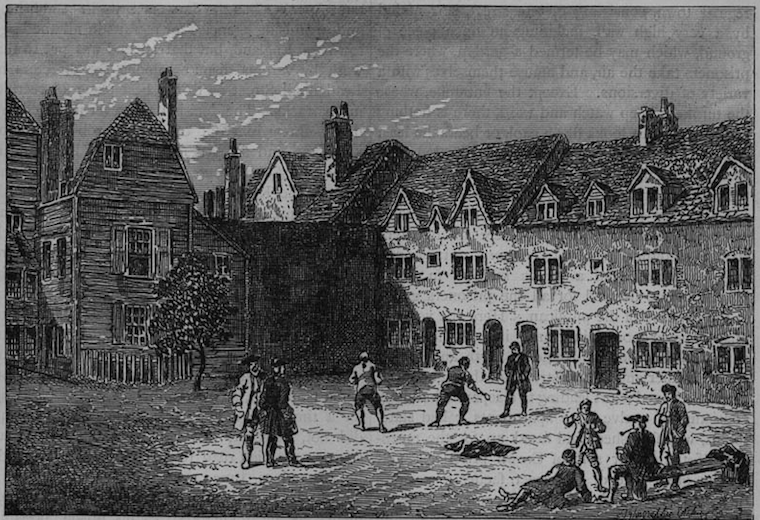3. Debt prisons: pay for your stay while you pay down your debt

Marshalsea Prison around the time Dickens’s father would have been an inmate.
We can’t forget debt prisons, whose existence and use personally affected Dickens and may have triggered him to focus on themes of social inequity in his work. Debt put his own father and family in jail: In 1824 John Dickens, along with his wife and kids, was sent to South London’s Manshalea prison, whose fictionalization Dickens describes in Little Dorrit:
“The imprisoned air, the imprisoned light, the imprisoned damps, the imprisoned men, were all deteriorated by confinement. As the captive men were faded and haggard, so the iron was rusty, the stone was slimy, the wood was rotten, the air was faint, the light was dim. Like a well, like a vault, like a tomb, the prison had no knowledge of the brightness outside.”
Only debtors stayed in Marshalea. They had to pay rent in jail as well, which had the effect of compounding debt and thus keeping debtors in jail for years. When Dickens’ father was sent to Marshalea, he owed £40 — which when converted to present day USD is approximately $4,700, assuming inflation of 2 percent.





